
Complex PTSD occurs as a result of repeated or ongoing traumatic events. While complex trauma can happen at any time in life, this post focuses on attachment trauma related to childhood abuse or neglect. Most often there is a combined wound, in which you experience deficient nurturance from loving caregivers coupled with inadequate protection from dangerous situations or people. Growing up within an environment of fear, chaos, or rejection, and abandonment has significant and long-lasting repercussions on physical and emotional health.
As a result of attachment trauma, you might carry beliefs that you are damaged, not lovable, or that you cannot trust anyone. You might have feelings of shame, unworthiness, or helplessness. Perhaps, you feel plagued by anxiety or believe that you don’t belong in this world.
“Attachment trauma can lead you to withdraw from relationships in order to avoid further rejection or hurt. Or, you might feel overly dependent upon others and fearful of rejection. If you relate to these symptoms, it is important to know that you are not alone. These painful emotions are remnants of your past.” ~Dr. Arielle Schwartz
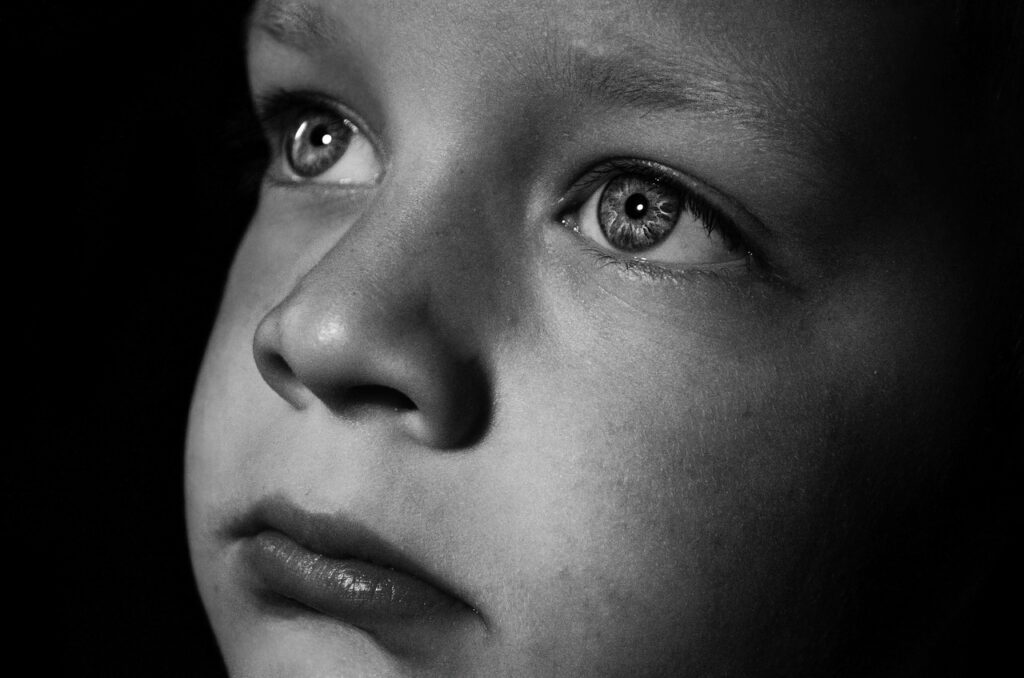
Growing up with childhood trauma inhibits creativity and replaces curiosity with fear. Your ability to feel confident in your friendships or successful in school becomes hindered. Over time, feelings of insecurity and inadequacy inform your sense of self—they become your identity.
Often complex trauma begins in infancy. The nervous system of an infant is completely dependent upon caregivers to help them feel safe, connected, and calm. Growing up with parents who were dysregulated, abusive, or neglectful shapes a child’s vulnerable nervous system. This can lead to long-lasting patterns of emotional and physiological distress that get carried into adulthood.
Sometimes, memories of physical or sexual abuse can lead to strong emotions and body sensations without a well-developed ability to explain your experience with words. These feelings can be difficult to understand. There may be parts of your memories that are unclear or forgotten. These experiences can evoke feelings self-doubt. Moreover, your ability to care for yourself as an adult is often a reflection of how you were cared for as a child.
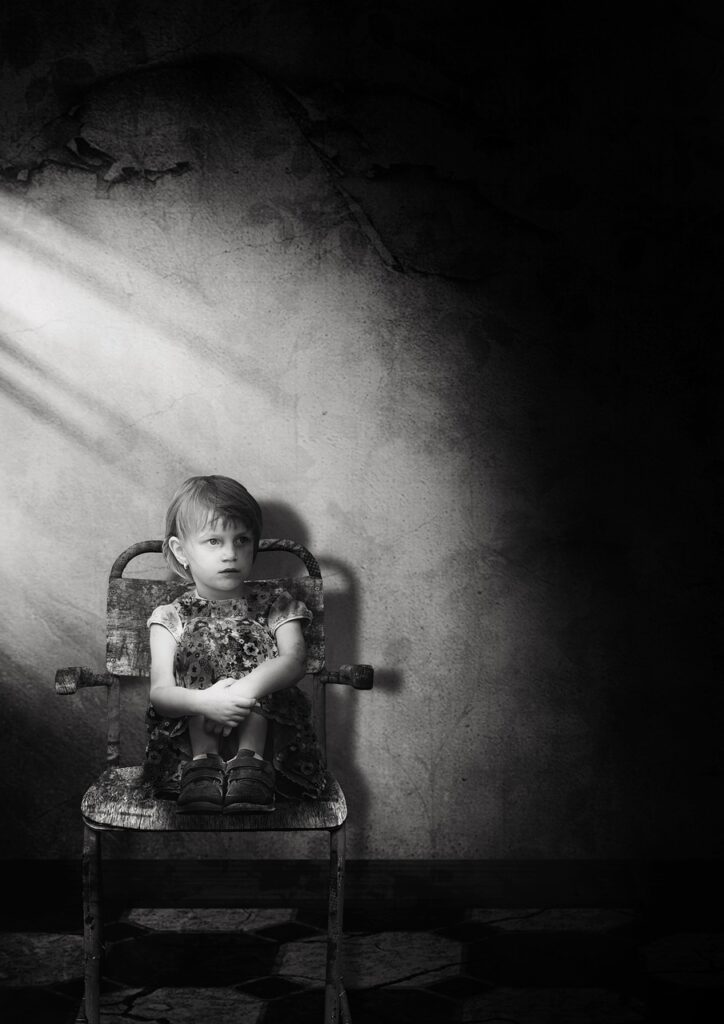
The first three years of life is referred to as the attachment phase of development. During this time, we need to feel safe and secure in our relationships with our mother, father, and other primary caregivers. This allows us to develop a healthy sense of self that forms the foundation for our ability to develop meaningful, healthy relationships as adults. If you have experienced C-PTSD in childhood, then these early relationships were most likely frightening, unpredictable, threatening, or unavailable. Your ability to form a “secure attachment” was likely disrupted.
Children respond to these earliest relationships by developing attachment styles which have been categorized into secure, insecure ambivalent, insecureavoidant, and disorganized attachment. Let’s take a closer look:
This attachment style forms when a primary caregiver was predictable, consistent, and trustworthy. Your parents did not have to be perfect. In fact, times of disconnection or misunderstanding are inevitable. However, a “good enough” parent provides opportunities to repair these moments of disconnection which builds your capacity to handle stress. A child who feels securely attached typically views a parent as a source of comfort and feels comfortable exploring, learning, and playing. As an adult, this security translates into the ability to develop meaningful connections with others while handling inevitable conflicts skillfully.
This attachment style arises when a primary caregiver was inconsistent and unpredictable. There may have been times in which you felt cared for; but these were interspersed with experiences of being yelled at or rejected for expressing your needs. These mixed messages typically lead to feelings of uncertainty because you could not trust that a loving and caring parent would be there when you needed them. In adulthood, it is common to feel fearful about being abandoned accompanied by strong dependency needs toward others.
This attachment style arises when a primary caregiver was disengaged, distant, and unavailable. Typically, your needs to be loved, accepted, seen, and understood were dismissed or ignored. As a result, you learned to take care of your own needs by becoming independent and self-reliant. In adulthood, it is common to maintain a dismissive attitude toward your own emotions and extend this same position in your relationships with others. As a result, you might struggle with intimacy; especially when your partner desires a deeper connection.
This attachment style arises when a primary caregiver was chaotic and abusive. Instead of being a source of love and care, the parent was a source of terror. Because we have an innate, biological drive toward attachment, children still attach to parents, even if they are aggressive and cruel perpetrators of abuse. There is an inherent double bind between our inborn need for closeness and the equally strong need to escape danger. Over time, this unsolvable dilemma leads to feelings of helplessness and hopelessness. In adulthood, it is common to alternate between feeling high arousal emotions of fear, irritability, or anger and low arousal emotions of defeat, despair, or depression. It is also common to repeat the relational patterns learned in childhood either by choosing partners who are abusive or behaving in abusive manner yourself.
Of note, most of us develop a combination of different attachment strategies. In part, because we have more than one parent who may have treated us differently. Therefore, you might notice that you have a mixture of secure, insecure, and disorganized strategies.
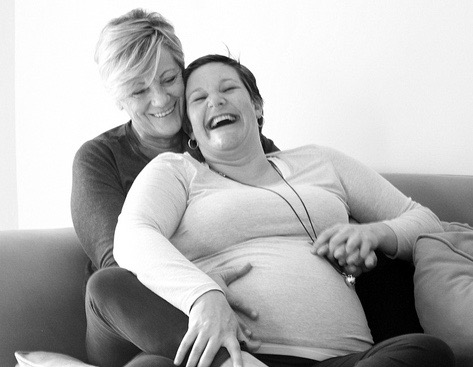
Most importantly, you have the capacity to develop “earned secure attachment” in which you learn how to feel securely attached in adulthood. An essential component of earned secure attachment is to recognize the impact of childhood events on your sense of self. In other words, you take responsibility for how your past has shaped you. The ability to coherently and accurately talk about your past is sign of earned security. Knowledge of your attachment deficits allows you to practice reaching out for support from others and tolerating increasing amounts of authentic connection. Furthermore, such self-awareness also helps you to successfully create repair when you have misunderstood or hurt a loved one.

Unresolved attachment trauma is often held by a young part of self. This is commonly referred to as your inner child. At times, you might feel identified with this young part of you that feels small or insecure. Other times, you might feel more connected to your adult self, helping you to feel confident and strong.
This healing strategy helps you to connect your adult self so that you can reconnect to your resources. Remember, as an adult, you have a range of choices that weren’t available to you as a child. You can recognize that your painful feelings are connected to memories from your past. Most importantly, you can recognize that the events of past are over now. As an adult, you can compassionately attend to the vulnerable feelings and emotions of held by a younger part of yourself. The following list of suggestions can be used to help anchor your adult self.
If you find that you are having difficulty with this practice, remember that you do not need to heal alone. Often, the work of healing a young part of self is best accomplished in the compassionate care of a therapist.
In time, it is possible to reclaim a secure sense of self. With practice, you develop greater faith in your capacity to sustain a positive mindset and hopeful outlook toward your future. Remember, your hard-earned insights and experiences of empowerment cannot be taken away from you. Eventually, you can reach a tipping point of growth in which you no longer identify with the shame and burdens of your childhood wounds.
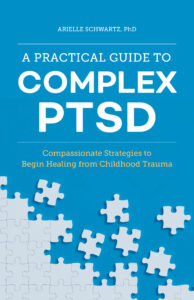
This post is an excerpt from my book, A Practical Guide to Complex PTSD: Compassionate Strategies for Childhood Trauma, which is meant to provide compassionate support for the process of healing from childhood trauma. You can think of it as a lantern that will illuminate the dark spaces and provide a sense of hope in moments of despair. The practical strategies you will learn in this book are taken from the most effective therapeutic interventions for trauma recovery. You will learn the skills to improve your physical and mental health by attending to the painful wounds from your past without feeling flooded with overwhelming emotion. My wish is to help you discover a new sense of freedom. The traumatic events of your past no longer need to interfere with your ability to live a meaningful and satisfying life. Click here to Order on Amazon.
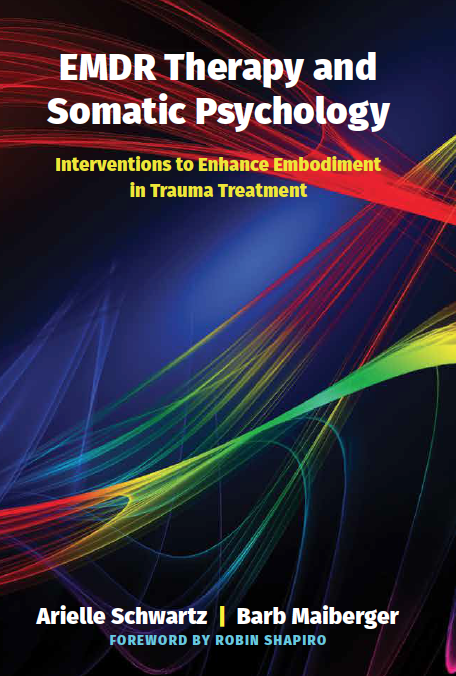
Connect to this post? The EMDR Therapy and Somatic Psychology book, is available on Amazon! Click here to increase your toolbox for healing. An integrative and effective approach to healing from trauma.
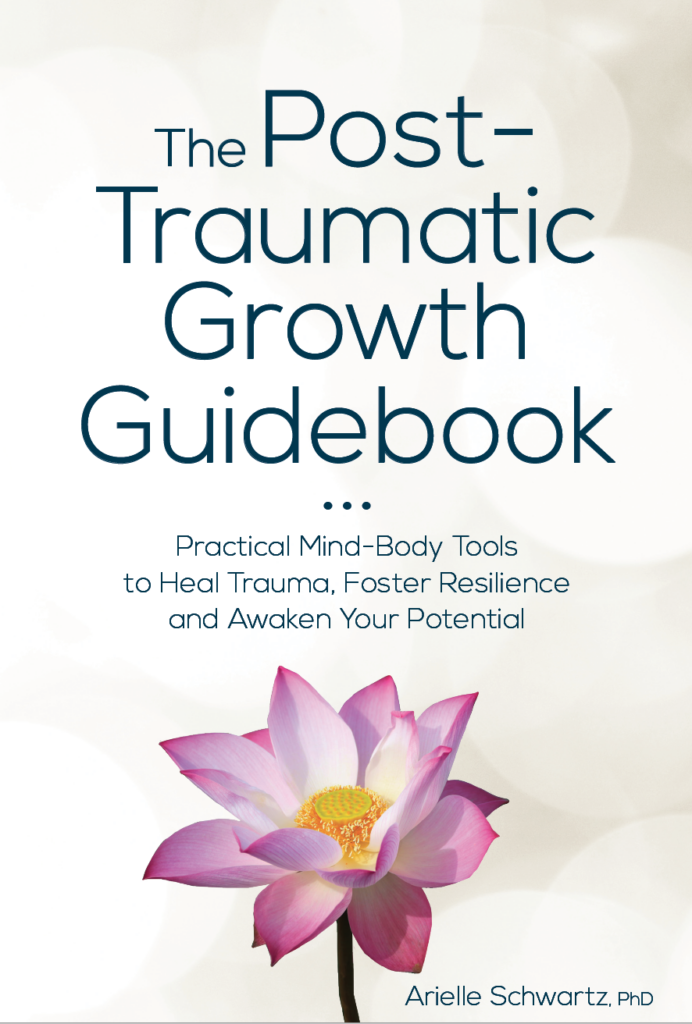
Read The Post Traumatic Growth Guidebook: Practical Mind-Body Tools to Heal Trauma, Foster Resilience, and Awaken your Potential. Within the pages of this book, you will find an invitation to see yourself as the hero or heroine of your own life journey. A hero’s journey involves walking into the darkness on a quest for wholeness. This interactive format calls for journaling and self-reflection, with practices that guide you beyond the pain of your past and help you discover a sense of meaning and purpose in your life. Successful navigation of a hero’s journey provides opportunities to discover that you are more powerful than you had previously realized. Click here to order the book on Amazon.

In The Complex PTSD Workbook, you’ll learn all about Complex PTSD Recovery and gain valuable insight into the types of symptoms associated with unresolved childhood trauma, while applying a strength-based perspective to integrate positive beliefs and behaviors. The Complex PTSD Workbook is available on Amazon! Click here to check it out.

Dr. Arielle Schwartz is a licensed clinical psychologist, wife, and mother in Boulder, CO. She offers trainings for therapists, maintains a private practice, and has passions for the outdoors, yoga, and writing. She is the developer of Resilience-Informed Therapy which applies research on trauma recovery to form a strength-based, trauma treatment model that includes Eye Movement Desensitization and Reprocessing (EMDR), somatic (body-centered) psychology and time-tested relational psychotherapy. Like Dr. Arielle Schwartz on Facebook,follow her on Linkedin and sign up for email updates to stay up to date with all her posts. Dr. Schwartz is the author of four books:

Arielle Schwartz, PhD, is a psychologist, internationally sought-out teacher, yoga instructor, and leading voice in the healing of PTSD and complex trauma. She is the author of five books, including The Complex PTSD Workbook, EMDR Therapy and Somatic Psychology, and The Post Traumatic Growth Guidebook.
Dr. Schwartz is an accomplished teacher who guides therapists in the application of EMDR, somatic psychology, parts work therapy, and mindfulness-based interventions for the treatment of trauma and complex PTSD. She guides you through a personal journey of healing in her Sounds True audio program, Trauma Recovery.
She has a depth of understanding, passion, kindness, compassion, joy, and a succinct way of speaking about very complex topics. She is the founder of the Center for Resilience Informed Therapy in Boulder, Colorado where she maintains a private practice providing psychotherapy, supervision, and consultation. Dr. Schwartz believes that that the journey of trauma recovery is an awakening of the spiritual heart.